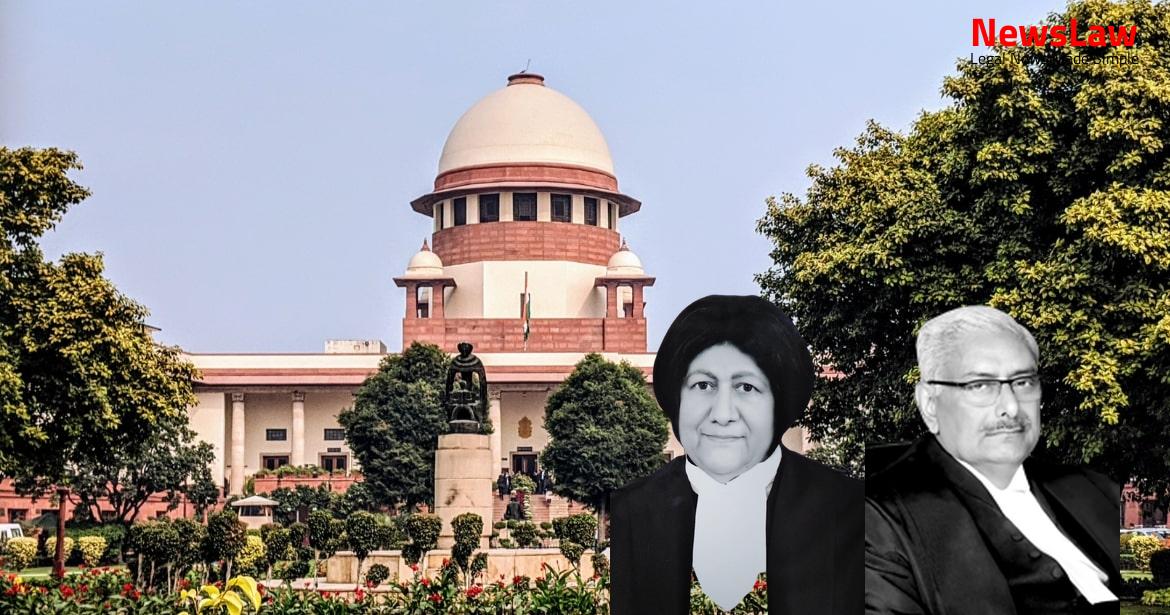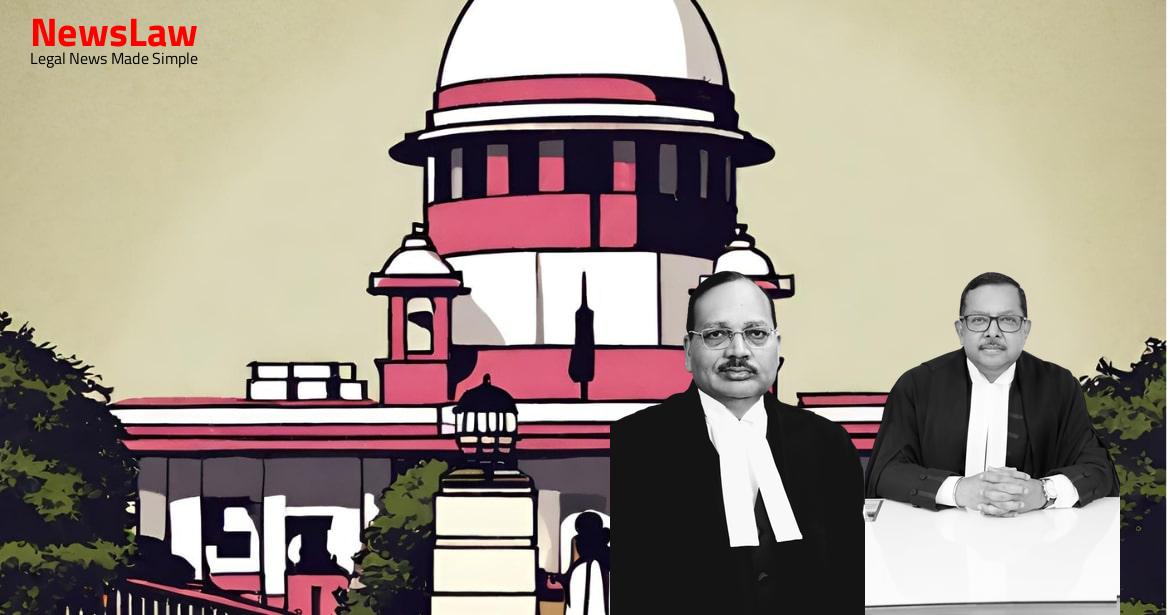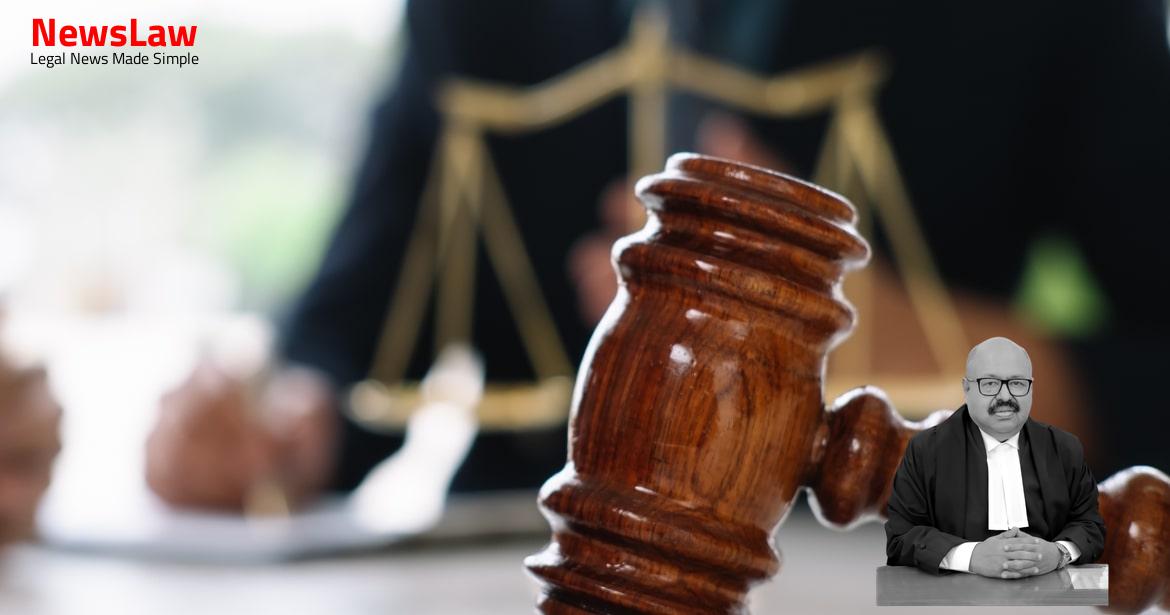The appellant in the instant case had developed and constructed the apartments in a housing project, namely “Windchants”, situated in Gurgaon, Haryana. Subject otherwise to the terms and conditions of this Agreement, a maximum of 10% variation in the Sale Area and the commensurate variation in the Total Sale Consideration is agreed to be acceptable to the Buyer and the Buyer undertakes to be bound by such increase/decrease in the Sale Area and the commensurate increase/decrease in the Total Sale Consideration. If such alternate apartment is available, the applicable Total Sale Consideration for such alternate apartment shall be payable/refundable, as the case may be, for the sale area of the alternate apartment at the BSP mentioned herein and there shall be no claim against the Company in respect of the Apartment nor shall otherwise be raised by the Buyer in this regard at any time.” 4. areas in/under staircases, circulation areas, walls atriums, stilts, lift shafts and lobbies, lift machine rooms, service shafts, passages/ corridors, refuge areas, common washrooms/toilets, mails rooms, all plumbing electrical and fire shafts, community facilities, common service rooms, security rooms, sewage treatment plants, underground and overhead water storage tanks, DG/panel room, terrace gardens, air handling units, pantries and any other areas which have been paid for or are constructed by the Company for common use, but shall exclude the areas under the following:- a) Sites for retail shops and other commercial areas in the Project. According to the appellant, there was an increase in the sale area, earlier provisionally allotted to the respondents, and therefore vide communication/letter dated 27.04.2017, the respective allottees were informed about the increase and revision in the sale area of their apartments.
Also Read: https://newslaw.in/supreme-court/appellants-obligation-under-mineral-auction-rules/
6 was, thus, well aware of the increase in the sale area and had made payments towards the same without any protest. The complaint was filed before the National Commission on 25.02.2022, that is, about five years after the ‘cause of action’ had arisen and three years after the lapse of limitation period. In the communication/letter dated 27.04.2017, intimating the purported increase in the sale area, the appellant had not placed any material or evidence to justify the increase in the area.
The issue of limitation has to be decided as per the provisions in the enactment, in the instant case Section 69 of the Act, which prescribes a two years limitation to file a complaint from the date on which the ‘cause of action’ has arisen. Since the complaints were made on 25.02.2022, and on exclusion of the period between 15.03.2020 to 28.02.2022, the complaints would be well within the limitation of two years from the date on which the ‘cause of action’ had arisen as prescribed in Section 69 of the Act.
The communication/letter dated 27.04.2017 by the appellant states that the construction work was in progress and that the appellant would soon be starting the occupation certificate process. The ‘cause of action’ arose when the appellant insisted and compelled the respondents/allottees to make payment, but did not furnish the details and particulars to enable the respondents/allottees to ascertain the actual allocated sale area. We also observe that the consumer forums have the power to condone the delay when sufficient cause is shown, even after two years of the ‘cause of action’ having arisen. Therefore, it does not lie in the mouth of the respondents to say, rather, they were estopped from saying four years after the execution of the conveyance deeds in their favour that there was no actual increase in the sale area and the demand raised by the appellant in that regard was not justified or was illegal. This Court accepted the argument by the consumers that execution of a deed of conveyance by a flat buyer would not preclude a consumer claim for compensation for delayed possession in a case where the allottees were not given an option, but were rather told that the possession would not be given and the conveyance deed would not be executed without the acceptance of the offer of possession terms.
This Court held that it would be manifestly unreasonable to expect that in order to pursue a claim for compensation for delayed handing over of possession, the purchaser must indefinitely defer obtaining a conveyance of the premises purchased or, if they seek to obtain a deed of conveyance to forsake the right to claim compensation. The contention that the settlement deeds were executed under coercion or under undue influence was also not accepted since no specific material had been produced on record to demonstrate the same. In Laureate Buildwell Private Limited (supra) the larger bench over-ruled the ratio laid down in Arifur Rahman Khan (supra) to the extent that a subsequent purchaser would not be entitled to the benefit of the order passed in case of the original allottee. As these aspects and questions are essentially factual, albeit have not been ascertained and addressed in the present case, we would pass an order of remand to the National Commission to examine the issue in light of the dictum laid down by this Court.
The justification given by the opposite party that on the basis of the internal report of the architect the demand was made for excess area is not acceptable because no such report or any other document has been filed by the opposite party to prove the excess area. There is no harm in communicating and charging for the extra area at the final stage but for the sake of transparency the opposite party must share the actual reason for increase in the super area based on the comparison of the originally approved buildings and finally approved buildings. We are not inclined to interfere with the order of the National Consumer Disputes Redressal Commission dated 26 August 2020 in Consumer Complaint Nos.
1357-1358 of 2021, in the said civil appeals filed by the appellant, were also dismissed by this Court on 11.01.2022 by passing the following order: “1. The order dated 12.01.2021 of this Court dismissing the civil appeals and the order dated 11.01.2022 dismissing the subsequent review petitions filed in the case of Pawan Gupta (supra) are non-reasoned orders that do not state what has weighed with the court while dismissing the appeals and the review petitions. Bhattacharyya, appearing on behalf of the respondents, has submitted that the findings recorded in the judgment by the National Commission in Pawan Gupta ’s (supra), which is a case related to the same housing project, has merged with the order passed by this Court in the appeals preferred by the appellant and it will be binding on the appellant on subsequent cases, including the cases filed by the respondents.
Also Read: https://newslaw.in/?p=680
Hence, upon the dismissal of the statutory appeals filed by the appellant in case of Pawan Gupta (supra), the judgment of the National Commission would merge into the order of this Court through a non-speaking order. In the present case, the architect’s certificate and the report dated 23.09.2020 were placed before the National Commission, but they were not examined and considered in the reasons set out by the National Commission.
This Court has examined doctrine of merger in several decisions, but we would, for the purpose of this case, refer to only two decisions in Kunhayammed and Others v. Under Article 136 of the Constitution the Supreme Court may reverse, modify or affirm the judgment-decree or order appealed against while exercising its appellate jurisdiction and not while exercising the discretionary jurisdiction disposing of petition for special leave to appeal. ( v ) If the order refusing leave to appeal is a speaking order, i.e., gives reasons for refusing the grant of leave, then the order has two implications. But, this does not amount to saying that the order of the court, tribunal or authority below has stood merged in the order of the Supreme Court rejecting the special leave petition or that the order of the Supreme Court is the only order binding as res judicata in subsequent proceedings between the parties. Facts of the particular case may not be suitable as a foundation for determining some question of a general principle. ( ii ) Dismissal of the special leave petition by speaking or reasoned order — no merger, but rule of discipline and Article 141 attracted. Having noted the aforesaid two judgments and particularly the fact that the earlier judgment in Abbai Maligai Partnership Firm is duly taken cognizance of and explained in the latter judgment, we are of the view that there is no conflict insofar as ratio of the two cases is concerned.
Following the decision in Kunhayammed we are of the view that the dismissal of the special leave petition against the main judgment of the High Court would not constitute res judicata when a special leave petition is filed against the order passed in the review petition provided the review petition was filed prior to filing of special leave petition against the main judgment of the High Court. We, therefore, overrule the preliminary objection of the counsel for the respondent and hold that this appeal arising out of the special leave petition is maintainable.”” 30. But, this does not amount to saying that the order of the court, tribunal or authority below has stood merged in the order of the Supreme Court rejecting the special leave petition or that the order of the Supreme Court is the only order binding as res judicata in subsequent proceedings between the parties.
( vii )
On an appeal having been preferred or a petition seeking leave to appeal having been converted into an appeal before the Supreme Court the jurisdiction of the High Court to entertain a review petition is lost thereafter as provided by sub-rule (1) of Order 47 Rule 1 CPC.” 26.3.
The order passed by this Court, on the application of the principle of judicial discipline, bars and prevents any tribunal or parties from canvassing or taking a view which would have the effect of re- examination of the issues and points determined in the case of Pawan Gupta (supra) inter-se the parties to the decision. Once the superior court disposes the dispute before it in any manner, either by affirming the decree or order, by setting aside or modifying the same, it is the decree of the superior court, tribunal or authority, which is the final binding and operative decree. The learned counsel for the petitioners had drawn our attention to para 22 of the decision in Manmohan Sharma case, (2014) 5 SCC 782 which refers to the case of one Danveer Singh whose writ petition had been allowed and the order had attained finality as it was not challenged before the Division Bench or before the Supreme Court. the matter in issue between the same parties in the former litigation, while law of precedent operates in rem i.e. Therefore, law of res judicata concerns the same matter, while law of precedent concerns application of law in a similar issue. In the context of factual background of the present case, and on examining the judgment in the case of Pawan Gupta (supra) passed by the National Commission, we are clearly of the view that the order passed by this Court dismissing the appeal in the case of Pawan Gupta (supra) would operate as res judicata in the said case but does not lay down a binding precedent which would be applicable to other cases.
Case Title: EXPERION DEVELOPERS PRIVATE LIMITED Vs. HIMANSHU DEWAN AND SONALI DEWAN
Case Number: C.A. No.-001434 / 2023



